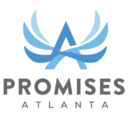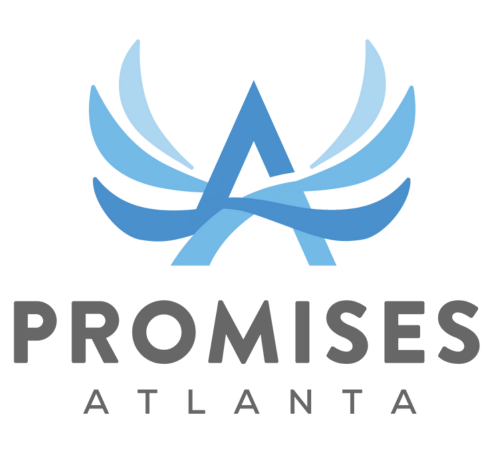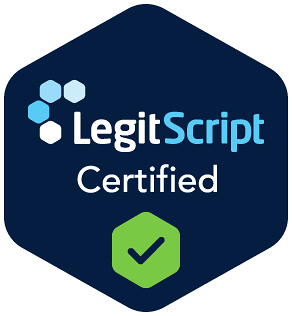Over the past decade, more people have been turning to prescription medications, sometimes in ways that are harmful or unintentional. What starts as a treatment for pain, anxiety, or sleep problems can slowly turn into a struggle with dependency. Today, prescription drug abuse is a growing concern across communities of all ages and backgrounds.
According to the National Institute on Drug Abuse (NIDA), approximately five million people aged 12 and older experienced a prescription opioid use disorder in 2021. In that same year, approximately 16,706 people died from an overdose involving prescription drugs.1 Prescription drug addiction is real and deeply concerning, impacting countless families and communities.
At Promises Atlanta, we understand how overwhelming this issue can feel. That’s why we offer personalized drug addiction treatment built around your needs. Whether you're dealing with a prescription opioid, sedative, or stimulant, our team is here to help with supportive, whole-person care that treats the root causes of addiction.
Understanding prescription drug addiction
Prescription drug abuse occurs when medication is used in ways other than prescribed, such as taking higher doses, using someone else’s prescription, or using it solely for the purpose of feeling good. Even when initially taken for legitimate reasons, misuse can quickly lead to serious health risks. Recognizing these dangers early is crucial.
Addiction to prescription drugs can affect anyone, regardless of age or background. Over time, the brain develops a dependency, making it feel nearly impossible to quit without proper support. This is why seeking treatment and a strong support system is essential for recovery.
Commonly abused prescription drugs
Many types of prescription drugs can lead to addiction. Common examples include opioids for pain, benzodiazepines for anxiety, and stimulants for attention disorders. These medications can be helpful when used correctly, but dangerous when misused. Addiction often begins with a legal prescription.
Signs and symptoms of prescription drug abuse
Some possible signs of prescription drug abuse include:
- Taking more medication than prescribed or using it more frequently
- Lying about symptoms to get refills
- Visiting multiple doctors to obtain prescriptions
- Experiencing mood swings or drowsiness
- A sudden drop in work or school performance
Recognizing these signs early can help prevent further harm and enable timely intervention to address prescription drug abuse.
Causes and risk factors
Prescription drug addiction can happen for many reasons and often develops gradually, sometimes without anyone noticing at first. Factors like stress, past trauma, or a family history of addiction can significantly increase the risk. Easy access to medications, whether through a legitimate prescription or from friends or family, also plays a major role in fueling addiction.
Key risk factors include:
- Limited understanding of the prescribed drug and its potential risks
- A history of addiction to other substances, such as alcohol or tobacco
- Underlying mental health conditions
In some cases, people may start taking medication for valid medical reasons, only to find themselves relying on it over time as their tolerance increases. The combination of these factors can make recognizing and addressing prescription drug addiction challenging for both people and their loved ones.
The rise of prescription drug abuse
In recent years, more people have developed problems with prescription drugs. According to the Mayo Clinic, a person’s history and how long they’ve used opioids can affect the risk of developing an addiction. It's impossible to predict who might develop a dependency and misuse opioids. As prescription drug abuse continues to rise, understanding the causes and mechanisms behind this addiction has never been more critical.
Prescription drugs are highly addictive because they target the brain's reward system. When taken as directed, these medications can relieve pain or other symptoms. However, with prolonged use, the body can build a tolerance to the medication, leading people to take higher doses to achieve the same effect. This creates a dangerous cycle that can quickly spiral out of control.
Additionally, many prescription drugs have mind-altering effects that make them appealing for recreational use. People may start taking these medications without a prescription or in larger quantities than prescribed to experience euphoria or escape from reality. This can lead to addiction and serious health consequences.
Impact of prescription drug abuse on health
Prescription drug abuse can seriously harm both the body and mind, even if it doesn’t seem dangerous at first. Here’s how it can affect you:
- Physical health: Damage to organs like the heart and liver makes it harder for the body to function properly
- Brain health: Issues with thinking, memory, and emotional control
- Overdose risk: Abuse can lead to life-threatening overdoses
- Mental health: Worsening feelings of sadness, stress, or anxiety
The good news is that early help can make a big difference, turning things around and leading to healthier, happier lives.
Prescription drug addiction vs. opioid addiction
Opioid addiction is one type of prescription drug addiction, but other medications can also lead to dependence. Sedatives and stimulants can be just as harmful when misused. Treatment for each type of drug may look different based on the symptoms and risks. What they all share is the need for support and care.
Recognizing the need for help
Recognizing when to seek help can be life-changing, but spotting the signs isn’t always easy. Knowing what to look for is the first step. If you or someone you care about is struggling with prescription drug use, here are some things to watch for:
- Changes in mood, such as sudden anger, sadness, or emotional withdrawal
- Difficulty maintaining relationships or keeping up with responsibilities at work, school, or home
- Taking higher doses of medication than prescribed or running out of prescriptions too quickly
- Physical signs like increased fatigue, changes in sleep patterns, or unexplained health issues
- Feeling unable to stop using the medication, even when you want to
Recognizing these warning signs is an important step toward getting the support needed to live a healthier, substance-free life.
Prescription drug detox: What to expect
Once someone decides to get help, the first step is often prescription drug detox. During this process, your body begins to rid itself of the substances it has grown dependent on, which can bring physical and emotional challenges.
While detox may sound intimidating, it’s important to know that it’s a natural part of healing and that support is available every step of the way. You may experience symptoms like fatigue, headaches, or mood changes, but these are temporary and manageable with the right care.
Detox is often safest and most effective in a supervised environment, where medical professionals can help make the process as comfortable and supportive as possible. At Promises Atlanta, we offer a medically managed detox program that utilizes evidence-based approaches to safely and comfortably guide you through the process.
Opioid addiction treatment options
Getting care for prescription drug addiction means finding the right plan for you. Promises Atlanta offers different paths, depending on your needs and goals. These may include inpatient or outpatient care, therapy, and support groups. Every step is taken with your healing in mind.
Prescription drug rehab programs
Prescription drug rehab provides structure and support for lasting recovery. It often includes therapy, health care, and planning for life after treatment. These programs are designed to help you stay focused and safe. Residential treatment can be life-changing with the right team.
Inpatient vs. outpatient treatment
Inpatient treatment means you stay at the center full-time, which is helpful for more serious cases. Outpatient care lets you live at home while attending therapy during the day. Both options can be effective, depending on your situation. A care team can help you choose what’s best.
Behavioral therapies for prescription drug addiction
Therapy is a powerful tool for understanding addiction and finding healthier ways to cope. Techniques like cognitive-behavioral therapy (CBT) and dialectical behavior therapy (DBT) can help you build skills to manage stress, navigate triggers, and handle challenging emotions. These approaches aren’t just tools but game changers for lasting recovery.
Medication-assisted treatment (MAT)
This approach is often used in opioid addiction treatment. Medication can help stabilize your recovery and improve success. It works best when combined with therapy. Some FDA-approved medications for substance use disorders include:
- Methadone: Used to treat opioid addiction by reducing withdrawal symptoms and cravings. It is only available through specialized treatment centers
- Buprenorphine: Also used for opioid addiction, it can be prescribed by specially trained doctors in an office setting
- Naltrexone: Blocks the effects of opioids and reduces alcohol cravings, making it helpful for both opioid and alcohol addictions
MAT can help you stay on track with your recovery goals by addressing physical dependence on drugs or alcohol. However, it’s important to remember that medication alone is not a cure for addiction. It should always be combined with other forms of treatment, such as therapy and support groups.
Support groups and community resources
Support groups bring people together who understand what you're going through. They offer encouragement, advice, and friendship. Many people find strength in knowing they’re not alone. These groups are often a big part of addiction recovery programs.
Long-term recovery and relapse prevention
Recovery is a journey, not a quick fix. Long-term success comes from ongoing support, healthy routines, and having a plan. Staying connected to therapy and support groups helps prevent relapse. You don’t have to do it all at once—take it one day at a time.
The role of family and friends in recovery
Support from loved ones makes a big difference in recovery. Friends and family can help by listening, learning, and showing up. Family therapy can rebuild trust and strengthen communication. Everyone heals better when they heal together.
Legal and ethical considerations
Prescription drug misuse can have serious consequences, including legal issues such as arrest, fines, or even jail time. Sharing or stealing medications not only violates the law but also puts others at significant risk, as the improper use of these drugs can lead to dangerous health outcomes. Misuse can also strain relationships, affect job performance, and disrupt daily life. Understanding these risks is essential for making informed and safe choices regarding prescription medications.
Future trends in prescription drug abuse and treatment
Experts are working to make medications safer and harder to misuse. New treatments and prevention tools are also being developed. More attention is being given to mental health and whole-person care. The future looks hopeful for those seeking help. In recent data from the Centers for Disease Control and Prevention (CDC), overdose deaths involving opioids decreased from an estimated 83,140 in 2023 to 54,743.2 This is a promising sign that efforts to combat prescription drug abuse and the increased availability of addiction treatment are making a difference.
Take the first step today
You don’t have to face prescription drug addiction alone. Whether you’re seeking help for yourself or someone you love, taking that first step can change everything. At Promises Atlanta, our caring team is here to listen, answer your questions, and guide you toward the support you deserve. We offer personalized, whole-person care designed to meet you where you are. Call 888.488.6303 to speak with someone today, or fill out our confidential online form to get started. No pressure, no judgment—help when you need it most.
Sources




